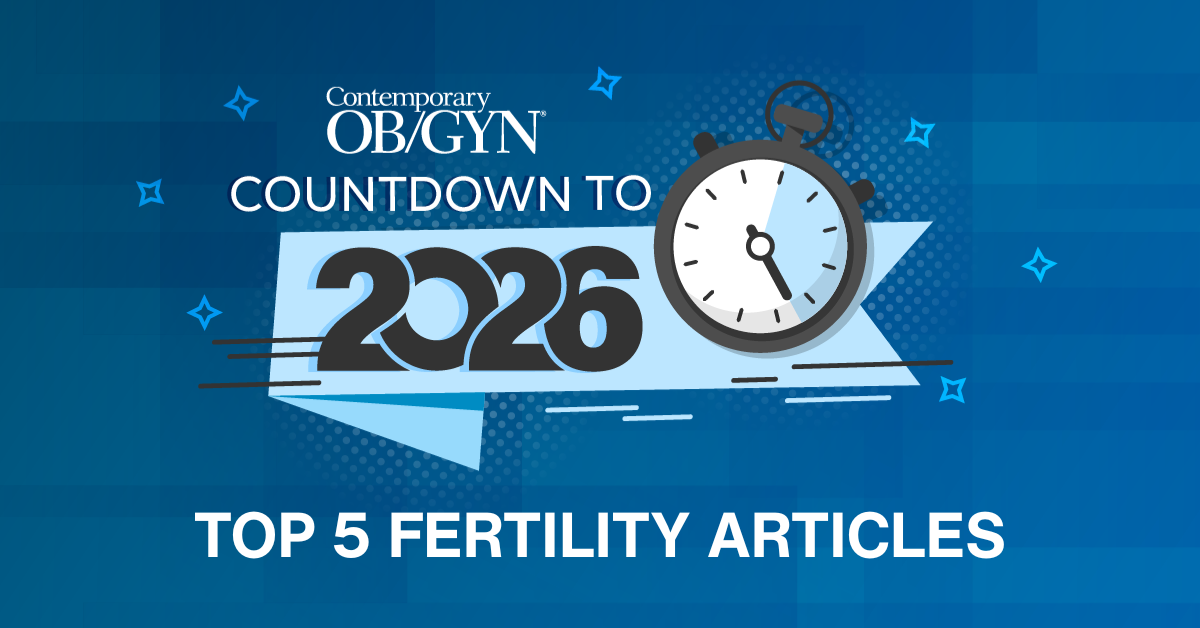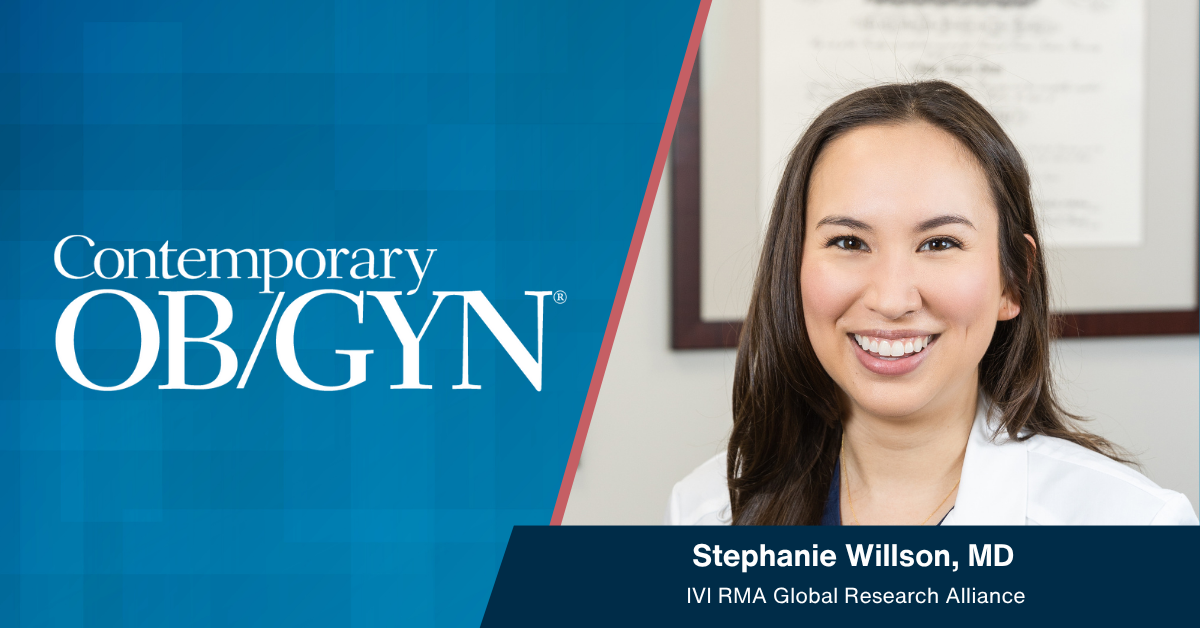
Infertility
Latest News
Latest Videos

Shorts
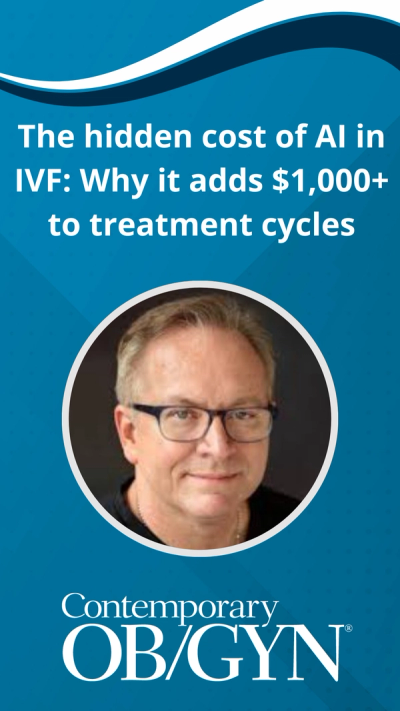
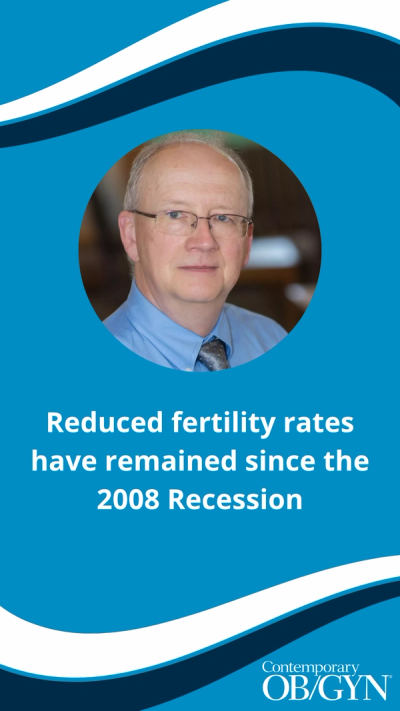
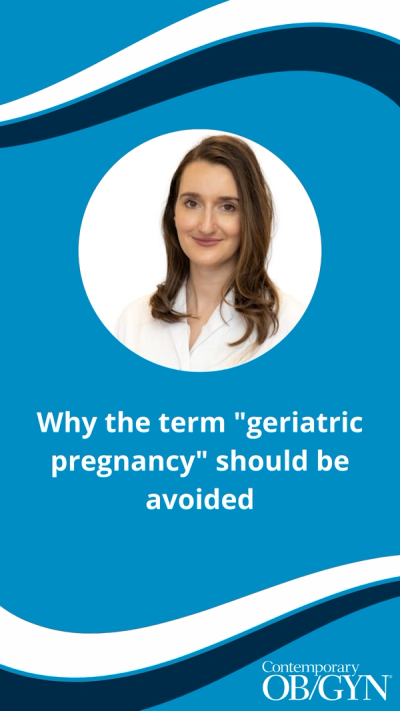
CME Content
More News


Review some of the top stories from the Contemporary OB/GYN website over the past week and catch up on anything you may have missed.
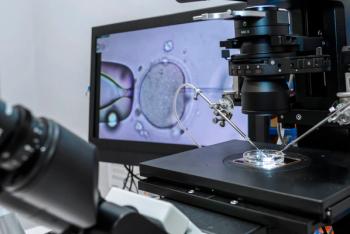
New research shows that antimüllerian hormone levels may help clinicians better estimate fertility preservation and future pregnancy outcomes in women with cancer.

Elective egg freezing increased nearly 4-fold from 2014 to 2021, but only 5.7% of women later returned to use their frozen oocytes.

Review some of the top stories from the Contemporary OB/GYN website over the past week and catch up on anything you may have missed.

Review some of the top stories from the Contemporary OB/GYN website over the past week and catch up on anything you may have missed.

A new study reveals that preconception body mass index outside the normal range is linked to lower fertility and greater miscarriage risk.

Ob-gyns play a crucial role in identifying fertility issues and facilitating referrals to reproductive endocrinologists for seamless patient care.

Review some of the top stories from the Contemporary OB/GYN website over the past week and catch up on anything you may have missed.
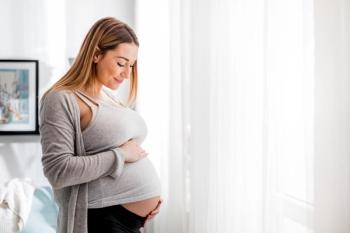
A new study suggests preimplantation genetic testing for aneuploidy can increase live birth rates in women aged 35 to 42 years.

New research suggests pre-in vitro fertilization weight loss improve chances of natural conception, though effects on live birth remain unclear.

Driven by economic concerns and shifting family planning trends, the US fertility rate dropped below 1.6 births per woman, despite a slight rise in total births.
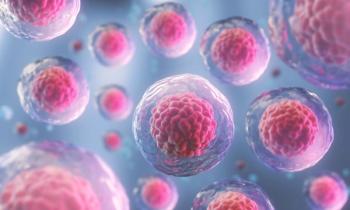
A new study reveals that stem cell treatment activates oocytes in 70% of women with ovarian failure.
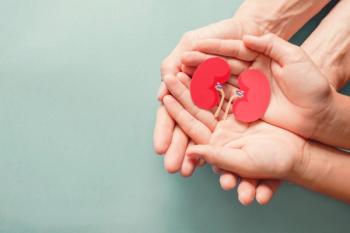
Women with kidney transplants who conceive through assisted reproductive technology face increased risks of complications such as hypertension, preterm birth, and cesarean delivery, according to new research.

Women with endometriosis-related infertility are more likely to conceive than those with other causes of infertility, a 30-year study shows.
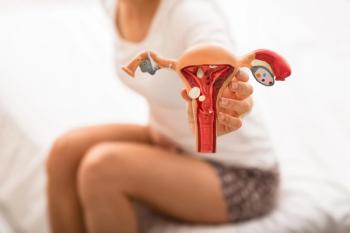
A large-scale study finds women with endometriosis are 4 times more likely to conceive than those with other infertility diagnoses, offering new hope for patients.

Review some of the top stories from the Contemporary OB/GYN website over the last week, and catch up on anything you may have missed.
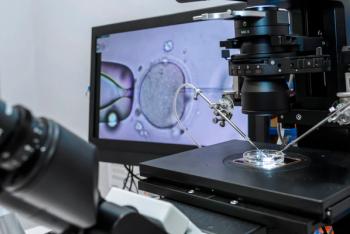
A retrospective study finds comparable pregnancy rates between PPOS and GnRH antagonist protocols, with a trend toward improved blastocyst outcomes in PPOS cycles.

New research reveals women with polycystic ovary syndrome are more likely to experience infertility and give birth at an older age compared to women without the condition.

A study found that nulliparous women with infertility, especially those using fertility treatments, face increased odds of cervical insufficiency and related pregnancy complications.

Review some of the top stories from the Contemporary OB/GYN website over the last week, and catch up on anything you may have missed.
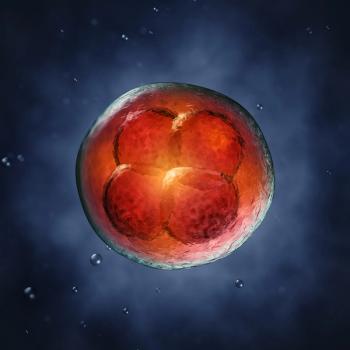
Limiting the number of fresh donor oocytes fertilized can reduce excess embryo creation while maintaining high live birth rates.
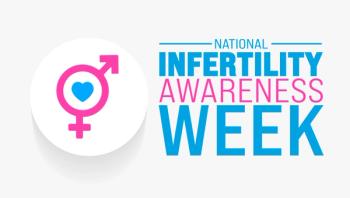
Find out the top 5 latest updates and headlines in fertility research in honor of National Infertility Awareness Week (April 20-26, 2025).

Review some of the top stories from the Contemporary OB/GYN website over the last week, and catch up on anything you may have missed.

A landmark fertility achievement, this artificial intelligence-driven intracytoplasmic sperm injection system marks a major step toward full automation in assisted reproductive technology.


